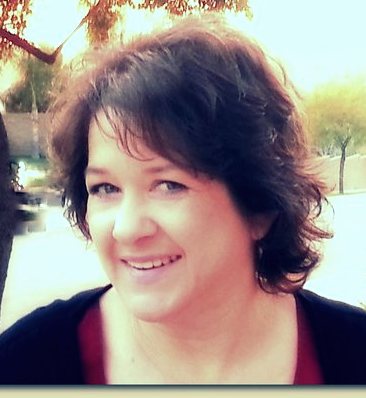
Learning Ally’s California-based Parent Support Specialist,
Jennifer Biang, has a unique perspective to offer fellow parents. “My daughter, Violet, has dyslexia,” she says, “and I also have dyslexia. That’s right; it does not come from the water, but from genetics.”
When Violet was identified as having dyslexia through private testing at age eight, Jennifer immediately began researching and learning as much as she could about it. “It’s been a tough row to hoe,” she says, “and after everything I’ve learned over the past several years, I realized there are several other people in my family that have alternative wiring. Unfortunately, they did not get the help that I did.”
In the first grade, when other kids were learning to read, Jennifer was not. Though she was never formally diagnosed with a learning disability, her school happened to use a reading program that is effective for those with dyslexia. “I was fortunate that I went from a non-reader to an advanced reader with the Orton-Gillingham-based program my school was using.”
When her daughter was identified, Jennifer felt excited and relieved because she knew what kind of tutoring could help with dyslexia. “I thought, ‘I’m going to take this report to the school and they will use the same kind of program with Violet that my public school used thirty years prior with me.’ And I also thought, ‘I bet they have even made improvements with that type of program.’ But when I went to the school, I was told they don’t recognize dyslexia as a disability and they didn’t offer any services for it.”
Jennifer turned to online resources and community groups for guidance. She couldn’t find any tutors who used evidence-based methods in her area, so she began tutoring her daughter herself with an Orton-Gillingham-based program.
When the parent-led grassroots advocacy movement Decoding Dyslexia began, Jennifer became the founding member of the California chapter. In just two years, Decoding Dyslexia grew from one state chapter to forty-six; and it collectively forms an enormous network for parents to tap into.
“The reason I do the work that I do is because getting help for a child with dyslexia doesn’t need to be as hard as it was for me, but unfortunately the right information and services are not that easy to access. The latest research shows that as many as 1 in 5 people have dyslexia. With a learning difference this prevalent, it shouldn’t be so hard to get the right support.”
As someone who has been on “both sides of the fence,” Jennifer is well equipped to help parents better understand their child’s needs. “I remember what it felt like in second grade to not be able to read, and it’s one of those things that you can’t really understand unless you’ve been through it,” she says. “It makes a big difference in your life when you’re given the proper tools and guidance.”
With support from her mom, the dyslexia community, and tools like Learning Ally’s audiobooks, Violet is thriving. Now age fourteen and in the eighth grade, she’s reading at grade level, and although she struggles with spelling, technology fills the gap.
With the new resources available to families today, support from groups like Decoding Dyslexia, and services like Learning Ally’s Parent Support Specialists, Jennifer is optimistic about the future for
all kids with dyslexia. “Today’s technology is awesome - you can have a mainstream device read to you. It opens doors, and more tools are being developed constantly. I’m so excited to be a part of the dyslexia movement at this time, because things are changing every day.”
To schedule a 30-minute phone consultation with Jennifer or one of Learning Ally’s other Parent Support Specialists, visit Our Parent Support Team or call 800-635-1403.